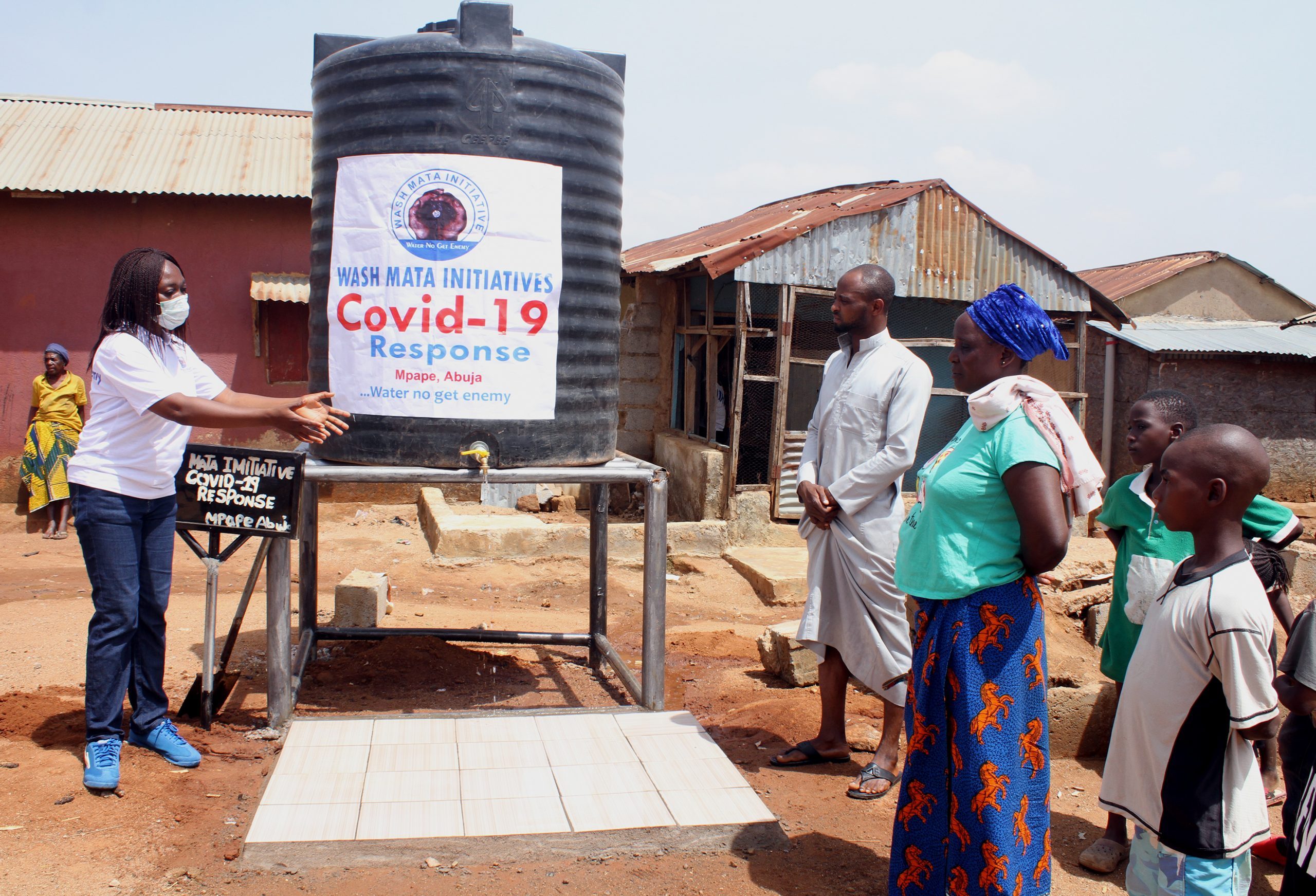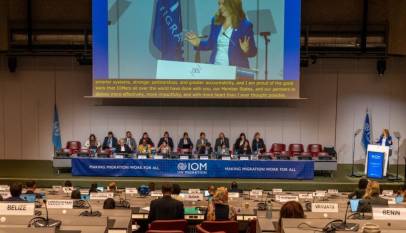In Nigeria, poor access to WASH services threatens fight against COVID-19
Over 150 million Nigerians do not have access to clean water and handwashing facilities, a major obstacle in the country’s effort to prevent the spread of COVID-19

Aware of its shattering consequences on economies and livelihoods, during the initial outbreak of coronavirus in China, Africans hoped the continent could be saved from the devastation of the respiratory illness caused by the new disease later named COVID-19. However, Africa`s hope was soon cut-short when the highly contagious virus spread into the continent in mid-February.
Consequently, COVID-19 has spread to all the 55 countries in Africa with more than 75,000 confirmed cases and over 2,500 deaths recorded across the continent, as at May 15, according to the latest data from the Africa Centers for Disease Control (Africa CDC).
As the virus spreads across African countries with fragile health systems, most countries had taken drastic measures such as locking down major cities to halt the spread of the virus. However, preventive and containment measures such as lockdowns come with a costly economic price, especially in low and middle-income countries such as Nigeria, where the livelihoods of millions of people depend on daily incomes.
In Nigeria, more than 5000 confirmed cases have been recorded with 171 deaths, as at May 15, according to the Nigeria Center for Disease Control (NCDC). Nonetheless, the country has begun to ease the lockdown of its major cities in a bid to gradually reopen the economy and ease the burden of the pandemic on Nigerian citizens, while also working to improve its testing and contact tracing capacity as well as encouraging preventive measures such as handwashing, use of facemasks and social distancing.
Like common cold, COVID–19 spreads through respiratory droplets of an infected person’s cough or sneeze. Hence, individuals in close contact with an infected person are in danger of being infected by their respiratory droplets. It can, likewise, be transmitted when the droplets land on surfaces and humans come into physical contact with the surfaces through their hands and subsequently touch their eyes, mouth, or nose. This means, our immediate environment can serve as a source of COVID–19 transmission.
Since there is still no vaccine against COVID-19, frequent and thorough handwashing with soap and clean running water, has been identified by the World Health Organization (WHO), as key to avoiding the spread and transmission of the disease. Moreover, as Nigeria begin to ease lockdowns and reopen its economy, access to WASH facilities for all has more than ever before, become necessary.
Although handwashing is considered a critical factor in preventing the spread of infectious diseases such as COVID–19, about 3 billion people worldwide do not have soap and water at home, with 900 million children lacking soap and water in schools, according to a 2017 joint report on handwashing facilities by the WHO and the United Nations Children`s Fund (UNICEF). In Nigeria alone, 150 million people reportedly do not have access to clean water and handwashing facilities while about 63% of the population in sub-Saharan Africa’s urban areas don’t have access to essential water services; hence, can`t wash their hands.
Muhammad Sabiu, a banker resident of Yola town in Adamawa state, northeastern Nigeria, laments the lack of access to adequate clean water in his household. Consequently, Sabiu, and his family of five, rely on water vendors for their daily requirement of about 250 litres of water at the cost of 250 Nigerian Naira ($0.62 USD).
When asked about his perception of the role of handwashing and good hygiene in the fight against COVID–19, Sabiu said he believes proper washing of hands reduces ones chances of getting infected with COVID–19 and possible transmission of the disease to others. “I wash my hands thoroughly and frequently, especially after handling bulk cash at work. Because I don`t know where the bank notes came from. What if an infected person had touched it?” he told African Newspage.
In an online survey of more than 200 people conducted by this reporter across Nigeria, which explored the level of access to handwashing and clean water among households, about 80% of respondents agreed handwashing with water and soap helps to stop the spread of COVID–19. Consequently, 57% of the respondents said they wash their hands with soap and water, regularly, 56% said they had access to clean water in their households, while about 7% reported not having access to clean water in their households.
In addition, about 60% of the participants said they use pipeborne water to wash their hands, while about 40% said they depended on water fetched from boreholes and wells for handwashing.
Overall, access to WASH facilities in Nigeria remains poor, according to the 2018 National Outcome Routine Mapping of Water, Sanitation and Hygiene Service Levels in Nigeria. The summary of the survey showed that only 11% of the Nigerian population had access to complete basic water, sanitation and hygiene services with those living in rural areas having less access to basic WASH services compared to those in urban areas.
Founded in March 2020, WASH MATA Initiative is a not-for-profit organization focused on ensuring sustainability of water supply, sanitation and hygiene facilities in Nigeria. Sustainability of WASH facilities and projects has been identified as one of the most crippling challenges faced in the WASH sector in Nigeria, with 1 in every 5 water supply schemes reported to break down during their first year of operation, according to a survey by the National Bureau of Statistics (NBS) and UNICEF.
In light of the COVID–19 pandemic, WASH MATA is working to improve access to water, sanitation and hygiene services among the urban poor in Abuja. Following reports of a potential community transmission of the coronavirus in Mpape, a large urban-slum in April, the initiative launched a handwashing sensitization campaign in the community tagged: ‘water no get enemy,’ (a popular pidgin English slang in Nigeria which translates to: ‘Water doesn’t have enemy’) as well as providing about 5,000 litres of clean water including handwashing facilities plus a 2,500 litres water storage tank to the community.
“Our work [at this moment] perfectly fits into the COVID–19 pandemic situation,” says Dr. Boluwaji Onabolu, founder and CEO of WASH MATA Initiative. “And our aim is to support the government and other stakeholders in the WASH sector to integrate WASH in the COVID–19 pandemic responses by contributing to strategy development and demonstrating the strategy.”
At the onset of the COVID–19 pandemic in March, the initiative had developed a COVID–19 advisory for government and development partners to guide sectoral WASH response. Onabolu noted the need for the Nigerian government to activate the WASH procedures used for humanitarian and disaster responses, and initiate urgent rehabilitation of non-functional water supplies for communities, healthcare facilities in Nigeria, adding that lack of access to water in rural communities could threaten the country`s fight against the spread of coronavirus.
Good hand hygiene i.e frequent handwashing with soap and water, can save millions of lives and prevent human-to-human transmission of COVID–19 in Nigeria. However, with millions of Nigerians lacking access to clean water, safe sanitation and hygiene, the risk of spread of the coronavirus among health workers and communities remains high. Hence, access to safe water, sanitation and hygienic facilities would play a critically-important role in protecting human health amidst the COVID–19 pandemic in Nigeria. Simply put: the fight against the spread of COVID–19 cannot be won without increased access to water for handwashing.
Abdullahi Tsanni is a 2020 fellow of the Communications, Advocacy, and Policy Opportunities and Outreach for Poop (CAPOOP) Sanitation Media Fellowship.










